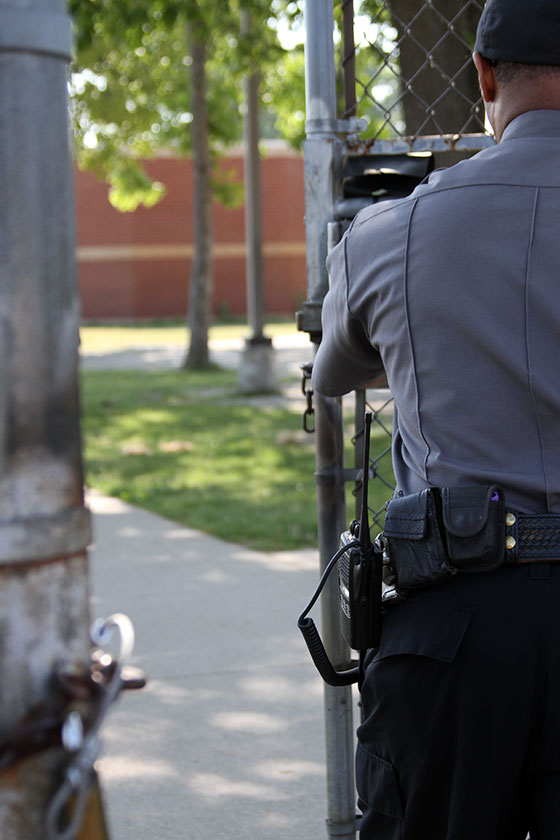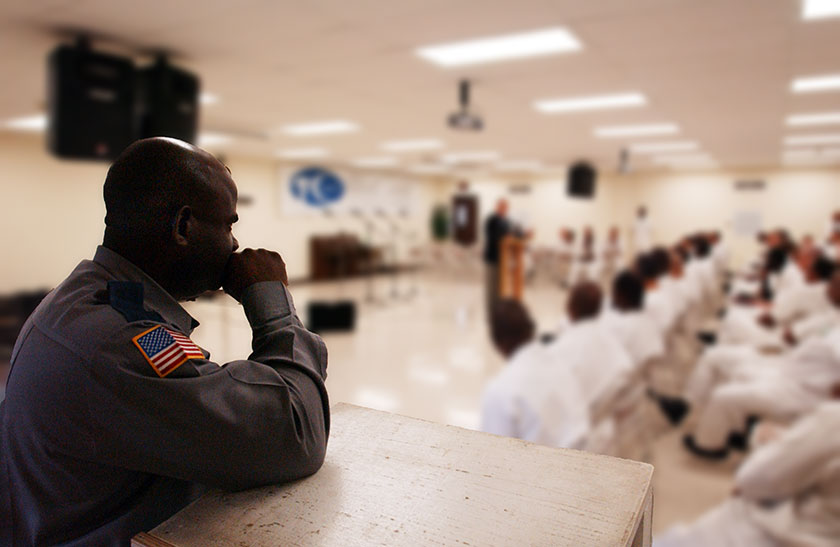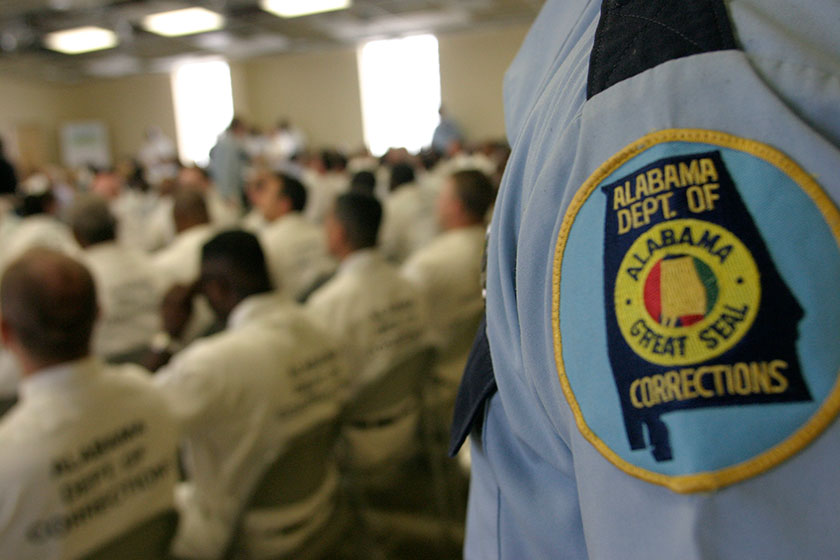Tim Buchanan meets with every prisoner when they arrive at his correctional facility.
"It is not my place to judge these men for the offense which lead to their incarceration," the 45-year-old Warden says. "but rather to instill the concept of accountability for their choices they make moving forward."
Instead, Buchanan says he wants to see each of the 2,500 men at the Ohio medium-security facility succeed. "It's a day-to-day choice for [the prisoners]," he explains. But Buchanan aims to provide the men a place where they can find that success.
'It's a hard job that challenges
you every day.
You can't always prepare for it.'
Lynn Lizotte agrees. "It can be a hard environment," she says. "I have women tell me that the staff doesn't care about them. But the staff does care. We want to see this population do well."
Lizotte is a deputy superintendent of a pre-release facility in Massachusetts, where she oversees staff and 120 female prisoners. She sees her job as a chance to help the women at her facility change and prepare them for reentry.
"They have kids who play with mine," she says. "I want to break the cycle. I want to see success."

Phillip Greer has served for 27 years in corrections, and today is the warden of a medium-security facility in Minnesota. The prison also functions as a corrections farm—"if our prisoners are not in school, then they are out working," Greer says.
Still, "If you boil down corrections to our very core, we cage human beings for a living," says Greer bluntly. "It's very easy to see the negative side of human behavior in corrections. [But] our goal is to treat these men humanely—with respect and dignity."
"It's a hard job that challenges you every day," says Lizotte. "You can't always prepare for it."
THE ROLE OF CORRECTIONS
Lizotte has seen a lot during her 15-year career. Many prisoners enter the system suffering from mental-health issues and substance-abuse problems. A correctional facility must have a staff that is committed to helping people rehabilitate.
The men and women who work on the line in corrections do not call themselves "guards;" they are correctional officers. Lizotte's staff often take on roles as counselors, referees, and sometimes even parents giving guidance and direction.
"Staff are not looking to punish. They want to help," Lizotte says.
"Corrections is not what you see on TV," Greer adds. "Our facilities are modern, clean, and productive."
"Corrections is not what you see on TV."
And since most of America's current prison population will one day be released, prison needs to be a place full of opportunities for a second chance at life.
"We can't change [the men and women] ourselves," says Greer, "but we can offer them the chance to change."
The job as a prison warden is to first give the prisoner what is due to them by the law, such as shelter and food. But after those needs are met, Buchanan says, an official’s job is to build on those basics so that prisoners can take advantage of their second chance at life after their release. That can be difficult when the turnover is quick.
"We need to remember that these are people who will go home and will work and live alongside us," Buchanan says.

NEW TACTICS AND SECOND CHANCES
Buchanan, Greer, and Lizotte are graduates of Warden Exchange™, an innovative program of Prison Fellowship that equips wardens to be transformative leaders in their facilities … and in the wider corrections community.
Revolutionary and highly interactive, this nine-month-long course convenes wardens from across the country for intensive training in best practices from some of the brightest thought leaders in criminal justice, business, and education.
"I wanted to connect and network with other professionals in my field," Greer shares. "Having the chance to talk to others who know the language and culture was appealing. … If you're on a cruise ship and you meet someone who asks, 'What do you do for a living?', 'prison warden' is not what they expect to hear."
"I didn't realize how lucky I was until I got there," Lizotte says. "Warden Exchange brings things down to the basics. The complicated things they make uncomplicated."
Participants of Warden Exchange graduate from the program with individualized action plans to bring restorative change to their facilities and fulfill their legacies of building safer, more constructive, and more rehabilitative correctional environments.
"Doing business the old way doesn't work," Buchanan explains. "We have to do more. We have to find nontraditional ways. I'm blessed to have a director who allows me to do these things [like Warden Exchange]. He gives me the freedom to help people, rather than limit the facility to bureaucracy."
"We are always trying to do the right thing.
We want to see the prisoners change their ways to be better off."

THE MISSION
Greer sees the mission of a warden as public safety. "There are a lot of different ways we can do that," he says, "[and] not just by removing people from society."
"I'm making a safer community for my children, your children, and the prison population's children," Lizotte shares. "If I can do that for my kids, then I'm doing that for the prisoners' children as well."
"We are always trying to do the right thing," Buchanan adds. "We want to see the prisoners change their ways to be better off."
"I tell [the women], 'You don't look good in prison green. You need to go home and get some new colors in your wardrobe,'" Lizotte says. She pauses and then adds softly, "I don't think [our] officers get enough credit."
Article by Emily Greene
DID YOU ENJOY THIS STORY?
Make sure you don't miss out on any of our incredible transformation stories! Sign up to receive our weekly newsletter, and you’ll get great content delivered directly to your inbox.
Your privacy is safe with us. We will never sell, trade, or share your personal information.
SUPPORT THE WORK OF PRISON FELLOWSHIP